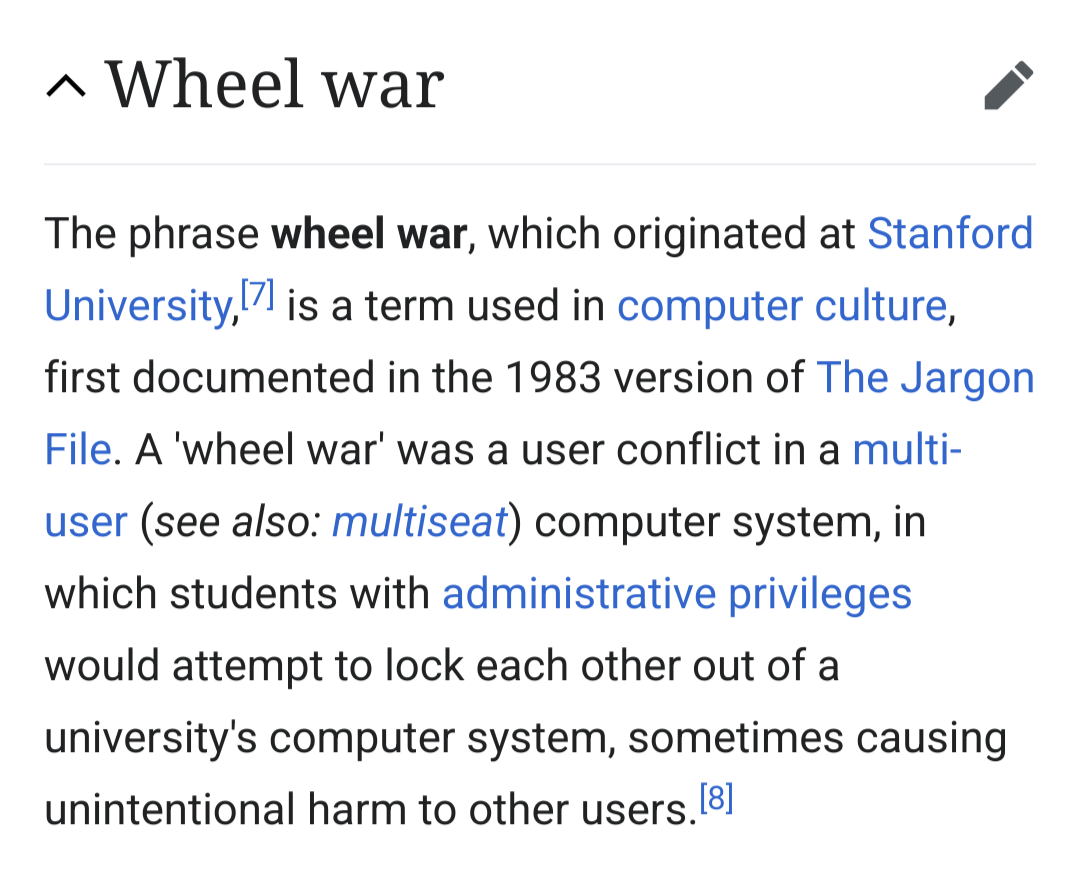this post was submitted on 22 Nov 2023
581 points (98.5% liked)
Linux
48186 readers
1446 users here now
From Wikipedia, the free encyclopedia
Linux is a family of open source Unix-like operating systems based on the Linux kernel, an operating system kernel first released on September 17, 1991 by Linus Torvalds. Linux is typically packaged in a Linux distribution (or distro for short).
Distributions include the Linux kernel and supporting system software and libraries, many of which are provided by the GNU Project. Many Linux distributions use the word "Linux" in their name, but the Free Software Foundation uses the name GNU/Linux to emphasize the importance of GNU software, causing some controversy.
Rules
- Posts must be relevant to operating systems running the Linux kernel. GNU/Linux or otherwise.
- No misinformation
- No NSFW content
- No hate speech, bigotry, etc
Related Communities
Community icon by Alpár-Etele Méder, licensed under CC BY 3.0
founded 5 years ago
MODERATORS
you are viewing a single comment's thread
view the rest of the comments
view the rest of the comments

I assume most of those students weren't "officially" given admin priveleges, which makes it extra funny
They may have been, things were far more trusting back then.
X servers, for example, would accept any connections. So we would often "export DISPLAY=friendscomputer:0.0" in the computer lab and then open windows of embarrassing content. Which at the time would likely be ASCII art....
One of my favourite wars was to open audio files on other people's SPARCs, somebody had the loudest bag pipe music that usually ended things.
Access to the SPARCs was normally restricted to third year but if you knew the right person you could get an account created pretty easily. Had the fastest access to the internet at the time within the uni as well.
I used to work at a company that did distributed QA. Other people's tests would run on your desktop. It worked surprisingly well. But occasionally a test of some audio resource would play on your speakers "The discrete cosine is a real, discrete version of the fast Fourier transform."
Ha, love the audio tell of the resource stealing